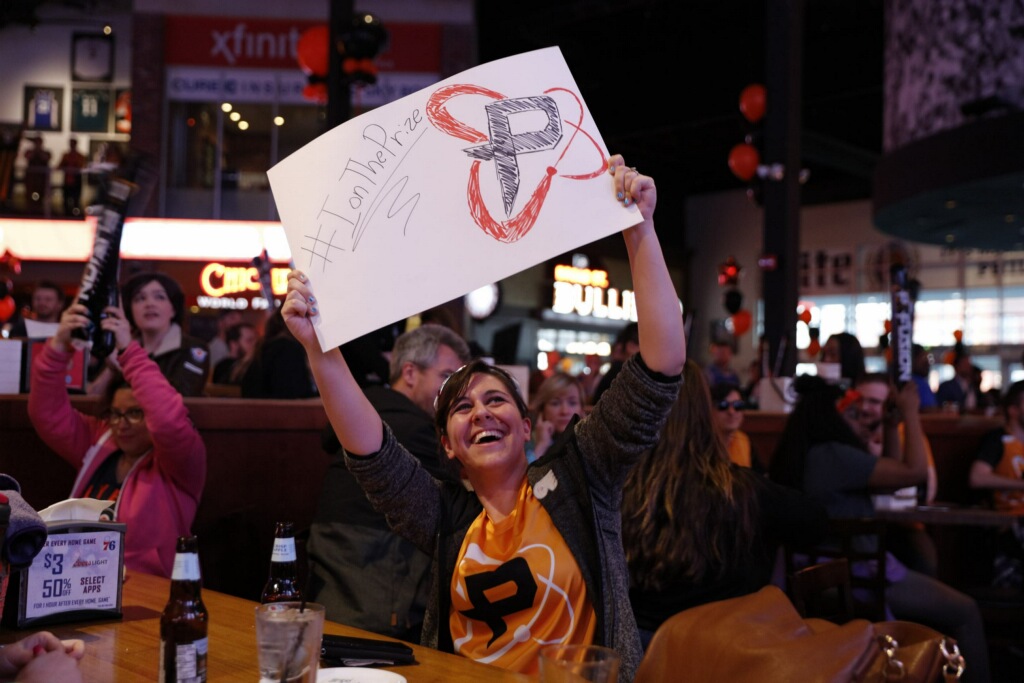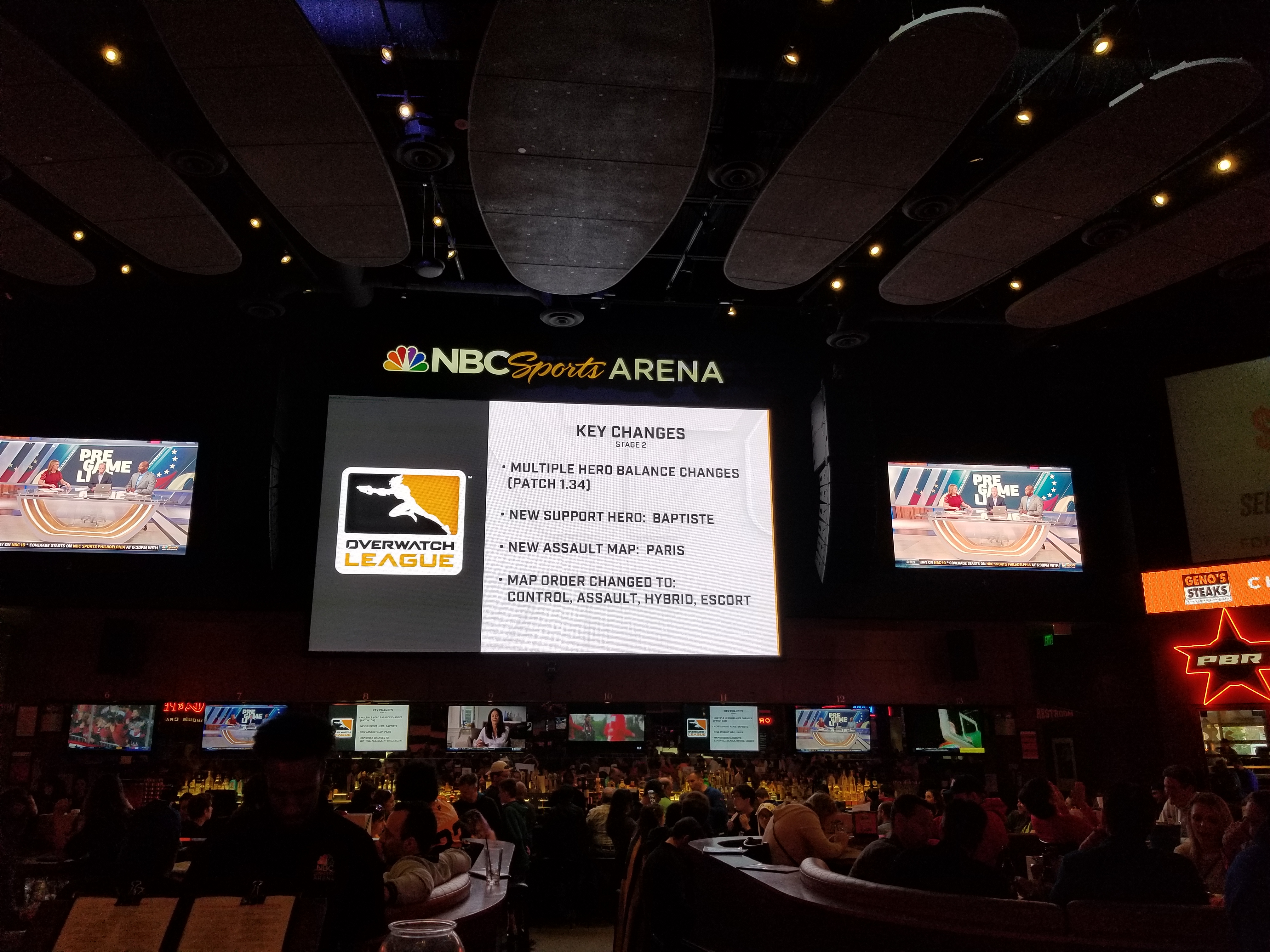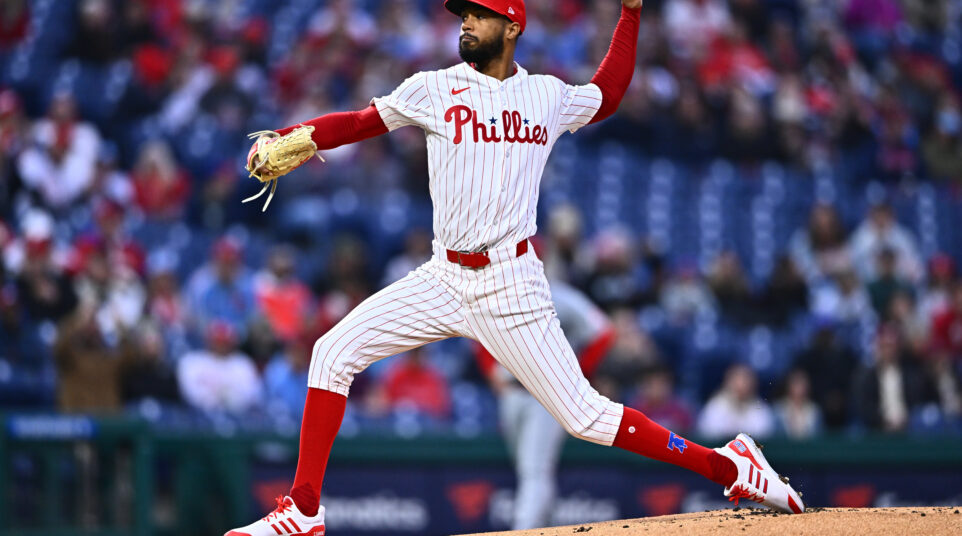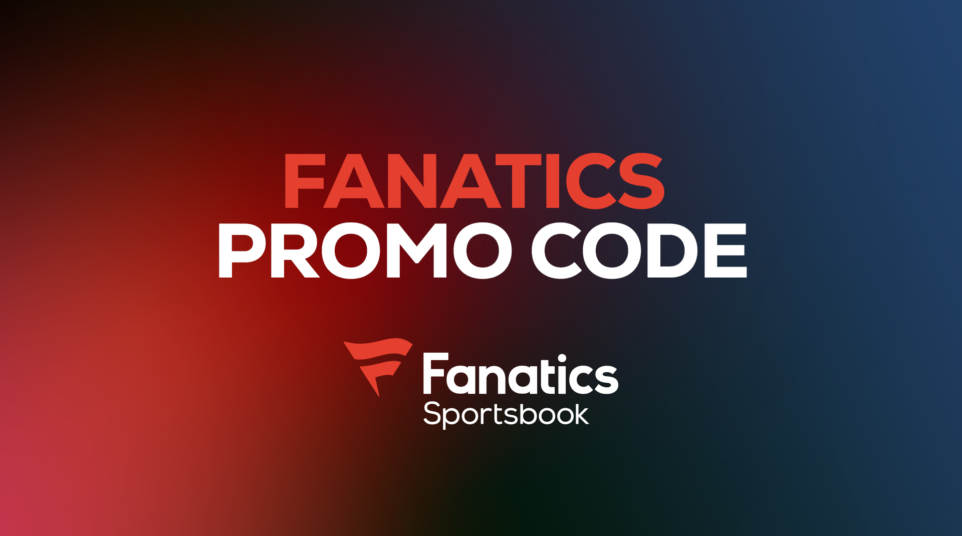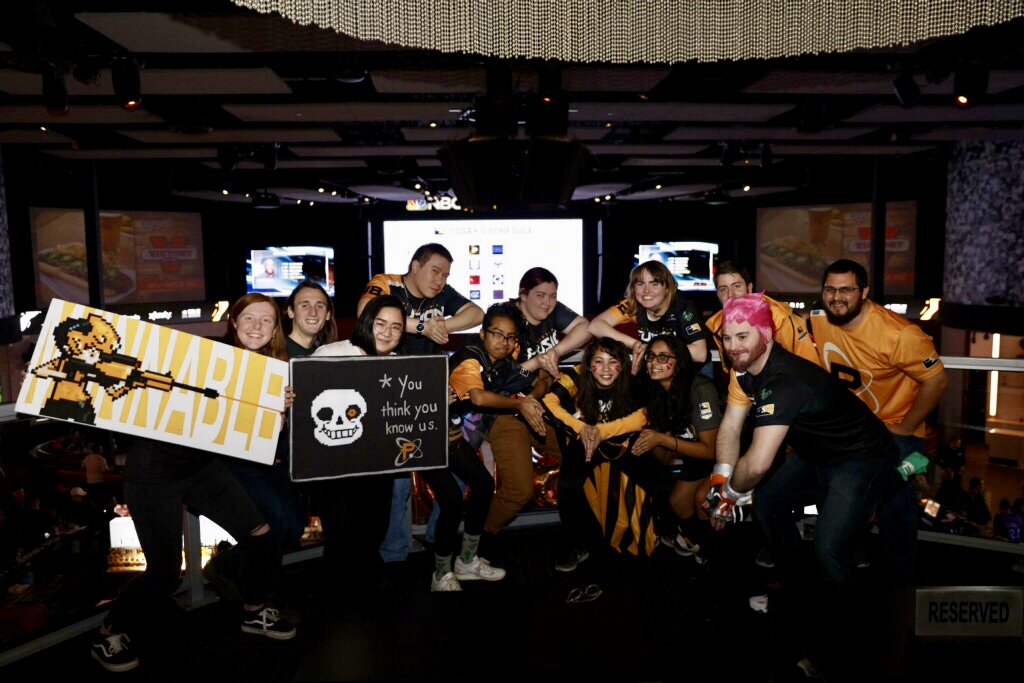
On Philadelphia and Video Gaming: A Conversation with Fusion Chief Business Officer Joe Marsh
The Philadelphia Fusion lost last night, but it happens.
They went down to the New York Excelsior, which is a dumb team name. I hate losing to New York, but losing to the “Excelsior” is even worse.
I checked out the Twitter replies last night and people didn’t seem too happy with the performance of “Sado,” who I think is our main tank. Some fans were calling for “Fragi” to play instead, so it seems like we’ve got a bit of a controversy brewing. I might even call up Sports Radio 94 WIP to share my feelings.
Anyway, I stopped by the viewing party at Xfinity Live last night before the match started. I didn’t have time to stay for the actual thing, since I had to roll back to the Wells Fargo Center for the Sixers game, though it looked like a nice crowd was there for the event.
I did have a candid and interesting conversation with Joe Marsh, who is the Fusion’s Chief Business Officer. We talked about the popularity of esports and the growth of a nascent Fusion fan base, and even though I load my Fusion articles with satire and humor, I tried to keep it pretty straight with Joe while learning some things about gaming along the way.
Here’s the full discussion:
Crossing Broad: I gotta be honest; the last time you guys did this, for the season opener, I looked at the crowd photos and was kind of shocked. This place was packed. I assume you were not shocked.
Joe Marsh: Not anymore. But if you would have asked me that in January of last year, I think our first watch party had something like 300 people at Wahoo’s. As the season progressed we started building the fan base. This was all from scratch, you know? We were a hockey team with no esports experience, so we had no fans. Then we had to shoot content and shoot video for a team that was playing on the west coast, so it’s kind of hard to attract a fan base when your talent is across the country. But once we reached the playoffs it kind of spiked from there with the underdog video. We brought the guys to (Philadelphia) and did a thousand people twice. The first watch party had 800 people pre-register before they even walked in the door. Consistently drawing a thousand people each time is pretty good.
Moe after the jump:
Crossing Broad: When I come to one of these events and I’m looking at the crowd here, who am I seeing? Am I seeing young? Old? Men? Women? What is the demographic of the Fusion fan base?
Marsh: You’re definitely seeing young. But you’re seeing a lot more women, even as far as merchandise sales it’s 60/40 women, which is surprising, because most games you’ll see the stats and it’s 88% male fans vs. 12% female. But at live events, purchasing merchandise, it’s primarily female. Even in Korea, when we go there, a lot of the fans are women. The fans here are female, but it’s not because they like one player, it’s because they like and play the game. A lot of young fans, too, the average age is probably 14 to 25. We do see older fans because it’s parents bringing their kids down here. I always like to chat up the fans that are sitting there and they say, ‘I have no idea what’s going on, but my kid likes it, so I take them down here,’ and I’m thinking ‘cool, that’s awesome.’
Crossing Broad: Do you see a cross-section of… I guess I should ask it this way – What is the cross-section of Philadelphia Fusion fans that are also interested in the Sixers, Eagles, Flyers, and Phillies –
Marsh: Four for four.
Crossing Broad: Yeah, the old cliche we hammer into dust is this “four for four” thing. Do you see the Fusion fan base interfacing with those other sports?
Marsh: I think the biggest benefit that we have as a team is the fact that we’re a Philadelphia-based team. Because you have that built-in (idea of) ‘you’re from Dallas and I’m from Philadelphia, so we hate you.’ Overwatch is the only geo-based game right now, so we have a market, we have a home base to go to. We have that built-in kind of grounding, but the difference is our fans, a lot of them could never relate to traditional sports, that four for four idea. But when video games like Overwatch came out, now they can relate to that (mentality). Now you’re seeing the same passion you’d see with a Sixers or Flyers game watching one of our matches. When we went to the grand finals in Brooklyn (last summer), that was primarily Philly fans. We bused them up there and they were the loudest people in the building. That same fighting spirit, the cheering, the never give up attitude, it’s carrying over. It’s what we do in Philadelphia. It’s kind of ingrained in you.
Crossing Broad: Older people who might not be familiar with esports, they always get hung up on this idea of, ‘why am I going to sit around and watch somebody else play video games?‘ I’m sure you guys have heard it a million times now and tried to combat that narrative a million times now. What’s your answer to that?
Marsh: It’s the same question asked right back to them. Why do you want to watch a basketball game when you’re never going to be able to dunk? You might be the size of Muggsy Bogues, but you’re not Muggsy Bogues. Why would you want to watch the Eagles play? Because you’re never going to be able to throw a 50-yard touchdown. It’s the same concept. You just enjoy watching someone who is the best at something ply their trade. It’s the same thing in video games. I can play a video game, then I play against one of our guys and I suck. If I played pickup basketball with LeBron, I’d lose 10-0. I’d lose 10-9 if he spotted me nine points. You just like to watch the best in the world do what they do, and that’s the reply to that.
Philadelphia Fusion/Comcast-Spectacor
Crossing Broad: One of the things I find intriguing about esports is that when I was a kid, I hated sitting around watching other people play. I’m a thirty-something year old kid from the suburbs –
Marsh: Me too (laughs).
Crossing Broad: So you can relate. We would sit around, and if someone else had the Nintendo 64 controller, I got bored. Now you’ve got kids growing up, a generation that experts say are addicted to their phones, they can’t sit still, everybody has A.D.D. or whatever, yet here we are in 2019 and they’re watching other people play games. I guess the question is, what changed? Is it the advent of the internet? Twitch? Accessibility? Why is it different now?
Marsh: I think it’s the internet and it’s also the sites you can go to. If you go on Twitch, you can look at any kind of content. It’s like going down a rabbit hole on Youtube and you start looking at Kimbo Slice fights.
Crossing Broad: I wanna watch Soundgarden videos.
Marsh. Yeah, exactly. Twitch brings you some of the best gameplay in the world. In the NBA, we don’t get to see those guys practice. We just see them playing the game. Gaming fans are allowed to see that. They stream. Our players go stream, and you watch them have fun and goof off and talk to them, interact with them on their streams and donate money and support them.
Croossing Broad: People do the same thing with Youtube stars and influencers, they’ll just sit there and consume their content for hours at a time. It’s really not that much different.
Marsh: No, it’s not. I think it’s more – with Youtube you can’t interact with those people in real time. You can type comments. On Twitch, I could make a donation and you can respond and say, ‘hey Joe, that was awesome, thank you.‘ For that person, it’s a big deal to them. You can interact with them. It’s the connectivity. I think it’s a lot of that, and having the accessibility on your phone. A lot of our fans, you’ll see them in there double screening and they’re looking at the phone, they’re interacting on Twitter, they’re watching their tweets on the big board. It’s the ability to multitask and do more than one thing and I think that’s what separates the young vs the old crowd. And I’m like you, I grew up playing Goldeneye in the basement, no Oddjob.
Crossing Broad: Yeah, no Oddjob, remote mines in the facility.
Marsh: In college we’d play Call of Duty with the door open and talk trash.
Crossing Broad: Halo was big, too.
Marsh: Yeah, so we’d do the same exact thing, but now it’s online. Before it was just in person, and now it’s gone global. You can be in your house with your headset on and people say it’s anti-social, when you might be talking to someone in Israel.
Crossing Broad: Right, you could argue that it’s the total opposite of being anti-social.
Marsh: For sure.
On the big screen, esports. On the small screen, Sixers pregame live.
Crossing Broad: So tell me about the new arena.
Marsh: Been working on that for a year. Originally when we looked at it, we were trying to go to University City, where the critical mass of college students is located. Timing wasn’t going to work out. So when they offered us the plot of land next to Xfinity Live, which – this was always in the master plan, to build an arena or an amphitheater here –
Crossing Broad: Yeah, and I remember the original blueprints for this place, and it was supposed to be bigger.
Marsh: Yes. This was supposed to be bigger and there was supposed to be an arena there. When they offered us the land we jumped at it. We interviewed architects and found Populous. Since the fall we’d been designing and trying to find the right fit, and what you saw a few weeks ago is what we’ve got. It’s 3,500 seats with traditional arena amenities, so our training center will be in there. It’s got full-on production space and a media room. Then you look at premium seating. You have club seats, you have box seats with TVs that show you the perspective of a player on the stage. You have traditional suites and a VIP back bar. Everything you’d find in a traditional arena is there. It just happens to house an esports team, but it’s also fit for concerts and comedy shows and all that other stuff.
Crossing Broad: Last one for you, and this is kind of an open-ended question. If I was sitting in the Fusion board meeting and y’all were talking about strategies to move this thing forward, what would I be hearing? What are some of the immediate goals to grow this thing and get more people interested?
Marsh: I think getting more colleges in the amateur scene involved. The NCAA is never going to regulate gaming. Players get paid right now, so you’d run into the same argument traditional sports is having right now – getting paid vs. scholarship. These colleges are now giving out scholarships for gaming, but they’re able to collect prize money.
CB: So if I was on the League of Legends team at Penn State or whatever, I could get paid for that?
Marsh: Yeah. When you enter tournaments, you get prize money. Certain schools, like Harrisburg University, which is one of our sponsors, they actually give you a scholarship to play there, AND you get your prize money. So you’re kind of double dipping anyway, which then gets you into the age-old argument with the NCAA and paying athletes in traditional sports. I think servicing that scene, getting more colleges involved, getting more high schools involved (is important). The City of Philadelphia was kicking around starting a league this spring. Programming our venue with those types of events – because we only have 14 nights a year with the Fusion – it makes you think about what you want to do with the rest. It’s amateur events, getting those collegiate events, then also getting major events in Europe and the west coast to come here. And there’s always going to be the next new game, so like now it’s Apex Legends, being first to those things is what’s going to drive a new market. Games are going to fade. League of Legends has been around for a decade-plus, but then you have games like Fortnite, which has been around for two years-plus. That could fade away. Call of Duty popped, then didn’t really go anywhere. Sea of Thieves was hot for like three minutes. You’re always going to have the next fly-by-night game, it’s about capitalizing on that fan base. There’s a lot of crossover in hosting events. The live event experience is what makes gaming that much better than watching online. It’s like hockey. Watching hockey is much more exciting in person than on TV. Watching playoff hockey is even that much better.
….
Thanks for reading.
Let’s go Fusion.


